Masataka Itoda
About the department
In our department, oral rehabilitation is given to all age groups of people suffering from eating/swallowing disorders (reduced eating/swallowing function), dysarthria (difficulty in speaking), etc. to maintain or recover the functions. In addition, we provide health guidance and oral and systemic function training to patients in the perioperative period (from before to after surgery) of head and neck tumor surgery.
Common oral diseases treated
- Eating/swallowing disorder
Unable to eat, unable to swallow, aspiration, getting lean, etc. - Speech disorder/dysarthria
Difficulty in speaking, difficulty in phonation, slurred speech, etc. - Perioperative period of head and neck tumor surgery (from before to after surgery)
Director of the department
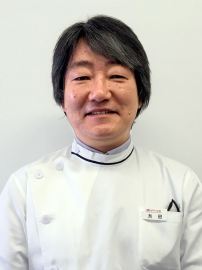
Specialty/qualification
- JSDR-certified clinician
(JSDR: Japanese Society of Dysphagia Rehabilitation) - Board certified dentist and instructor of the Japan Association of Oral Rehabilitation
- Board certified dentist of the Japanese Society of Gerodontology
- Board certified instructor of the Japanese Society of Oral Care
Chief Dental Clinician
Keina Nagahisa
Specialty/qualification
- Board certified dentist of the Japan Association of Oral Rehabilitation
- Associate fellow of the Japanese Society of Oral Implantology (JSOI)
Characteristics of dental care
1. Treatment of eating/swallowing disorder
We assess eating/swallowing function, provide general dental care as needed, and eating/swallowing rehabilitation for patients with various diseases such as cerebrovascular disorder (stroke) and intractable neurological diseases (Parkinson's disease, etc.) as well as patients who have difficulty in putting food into the mouth, biting, or swallowing due to cancer around the mouth.
* We give guidance on the form of food, way of assisting eating, and eating posture as well as functional training suited to individual patients so that the patients can acquire, restore, and maintain the eating function. We will fabricate the devices that help the patients eat and swallow if necessary.
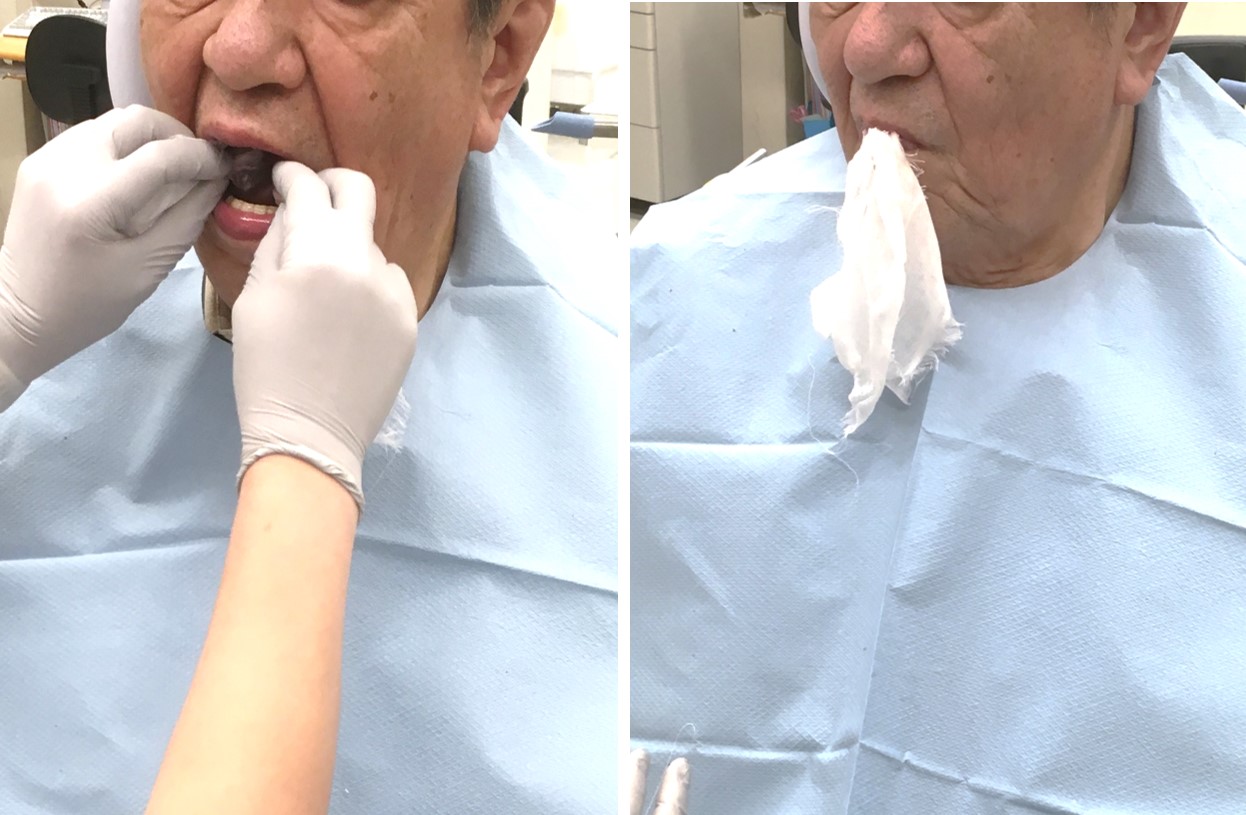
Direct training with food
2. Treatment of speech disorder/dysarthria
We provide speech training and rehabilitation for each patient according to the symptoms and living environment of patients who cannot speak well due to sequelae of cerebrovascular disorder (stroke) or oral cancer, have no abnormality in the mouth but have difficulty in pronouncing words, have difficulty in speaking specific words, and have difficulty in phonation.
* We improve the distortion of articulation which is hardly heard by improving the movement of muscles around the mouth and providing functional training such as contacting the tongue to various positions. We will fabricate the devices that help the patients pronounce words if necessary.
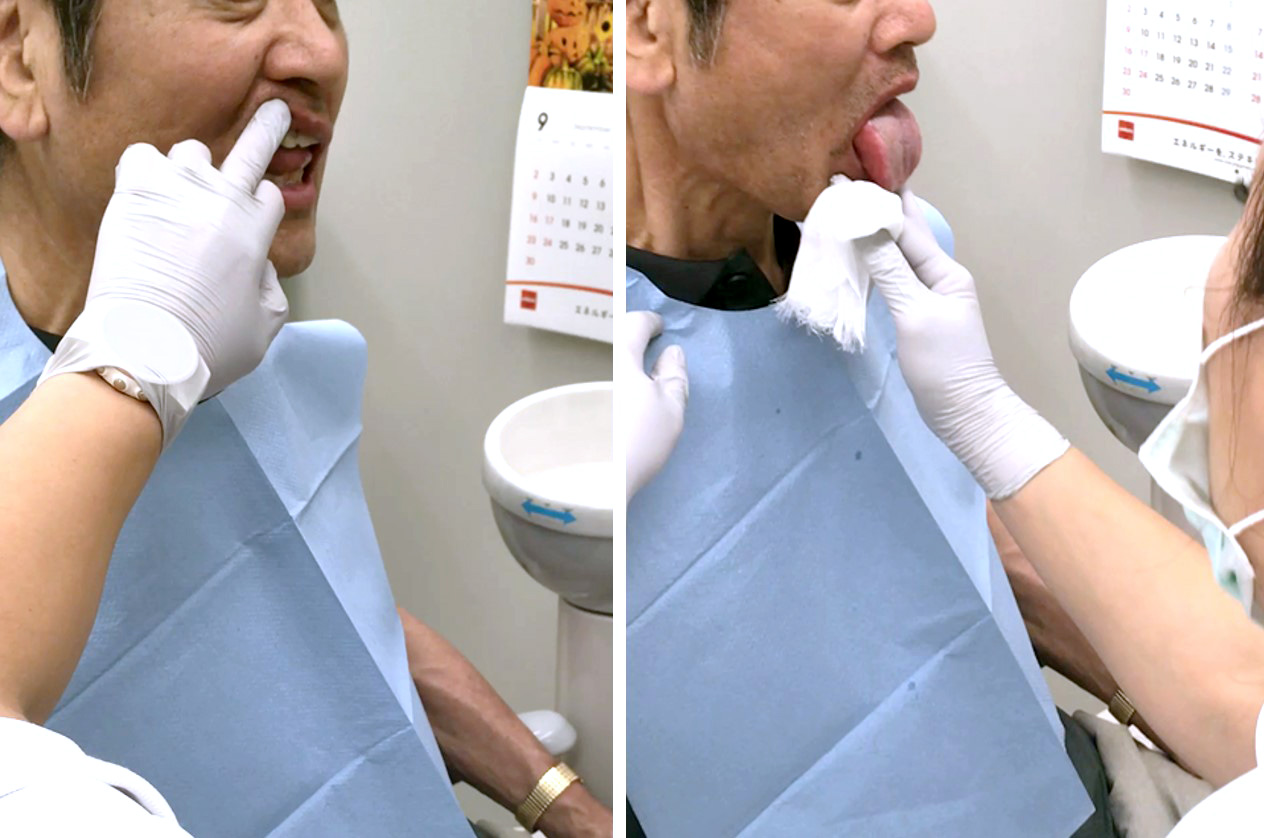
Articulation training, tongue function training
3. Treatment in the perioperative period of head and neck tumor surgery (from before to after surgery)
We provide oral care and health guidance to patients hospitalized for surgery for oral cancer, etc. to keep their mouth clean from before to after surgery. Also, we give postoperative rehabilitation so that patients can restore functions which decrease due to surgery. We fabricate special devices (denture) that help the patients eat/swallow and speak if necessary.
* Rehabilitation is given postoperatively if patients have reduced oral functions such as difficulty in opening the mouth, eating, or speaking as well as reduced systemic function such as inability to move the neck or raise the arms.
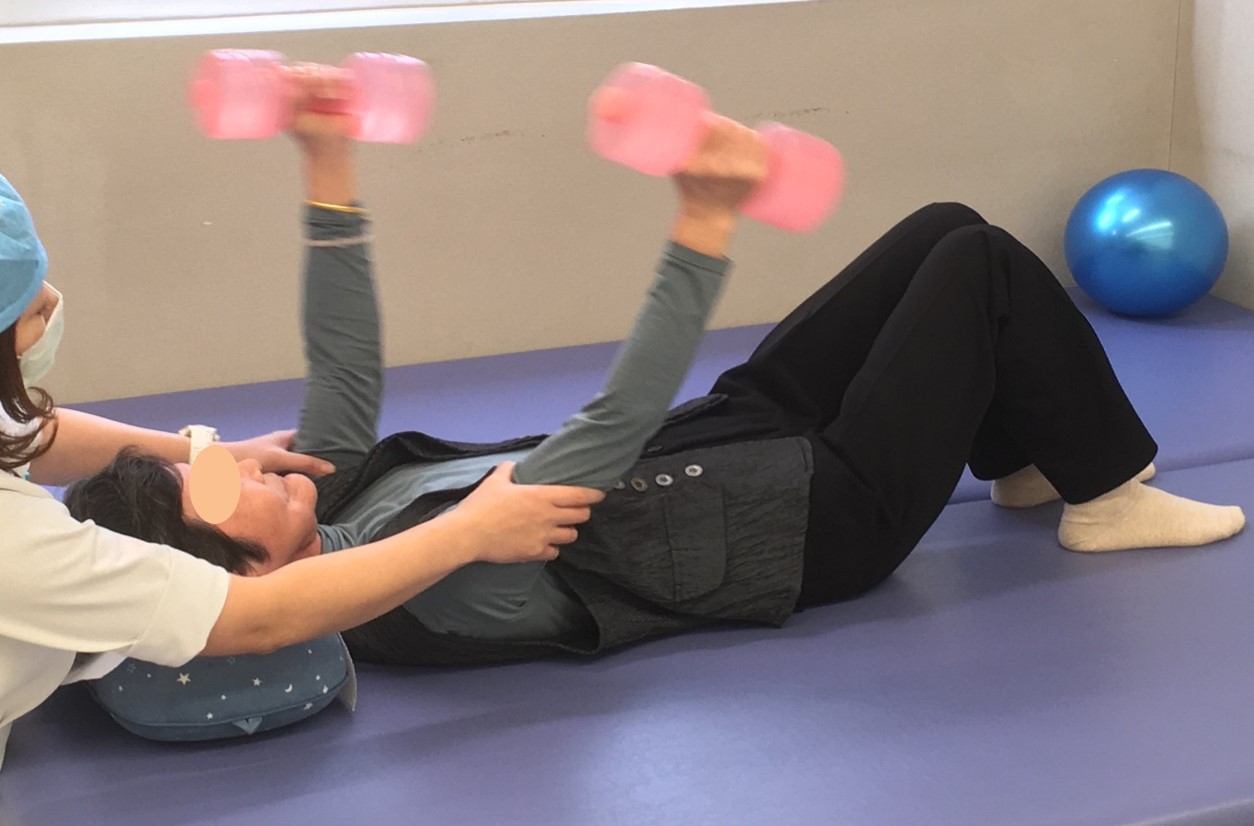
Postoperative around head and neck rehabilitation
4. Prevention of sarcopenia/frailty
Sarcopenia is a condition involving decreased muscle mass and deterioration of muscle strength and physical function, which causes fall, fracture, bedridden, and frailty. Frailty is an age-related condition involving decreased muscle mass or deterioration of physical function, and the patients are likely to develop health impairment, including fatigue and decreased vitality. To prevent these symptoms, it is important to take adequate nutrition and do exercise to maintain physical strength and increase muscle strength. In Oral Rehabilitation, we emphasize not only maintenance and restoration of oral function of patients but also nutrition and exercise guidance, aiming to improve the general health condition and quality of life (QOL) for the social life.
* Evaluation of various functions/health guidance
We objectively and quantitatively determine treatment effects and enhance the motivation of patients and their families by assessing oral function using instruments, etc.
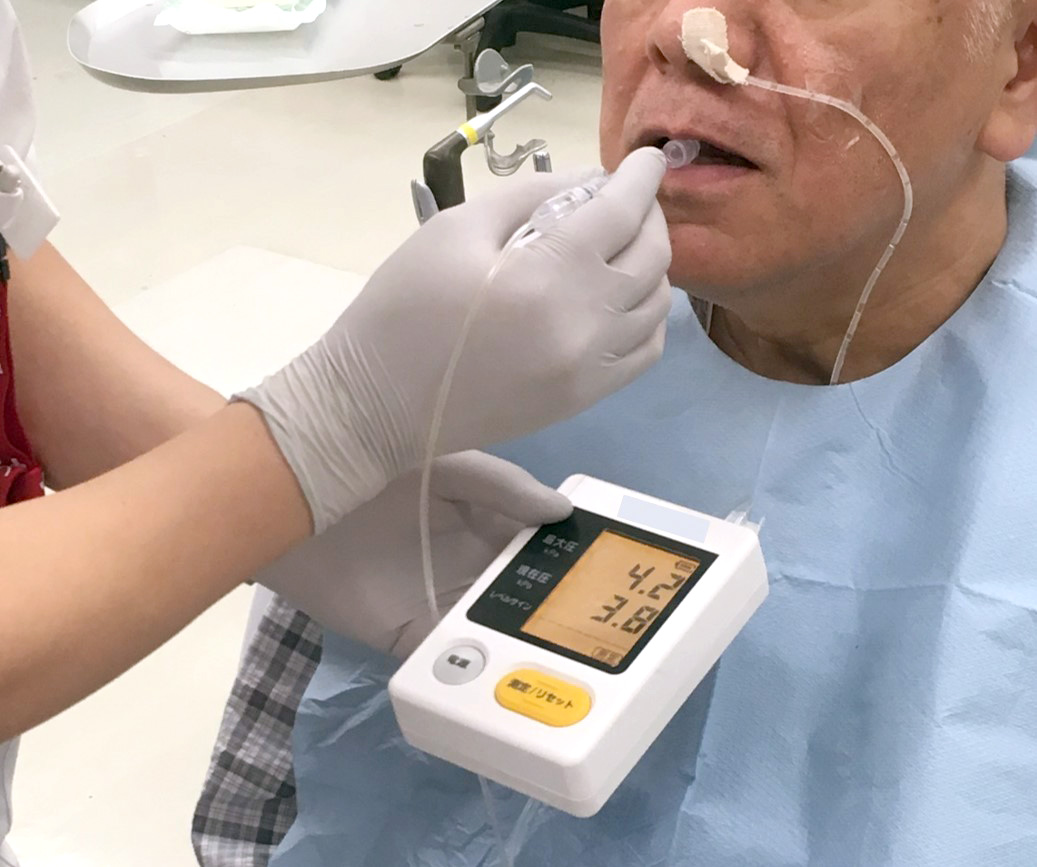
Quantitative assessment of oral function with a instrument (tongue pressure test)
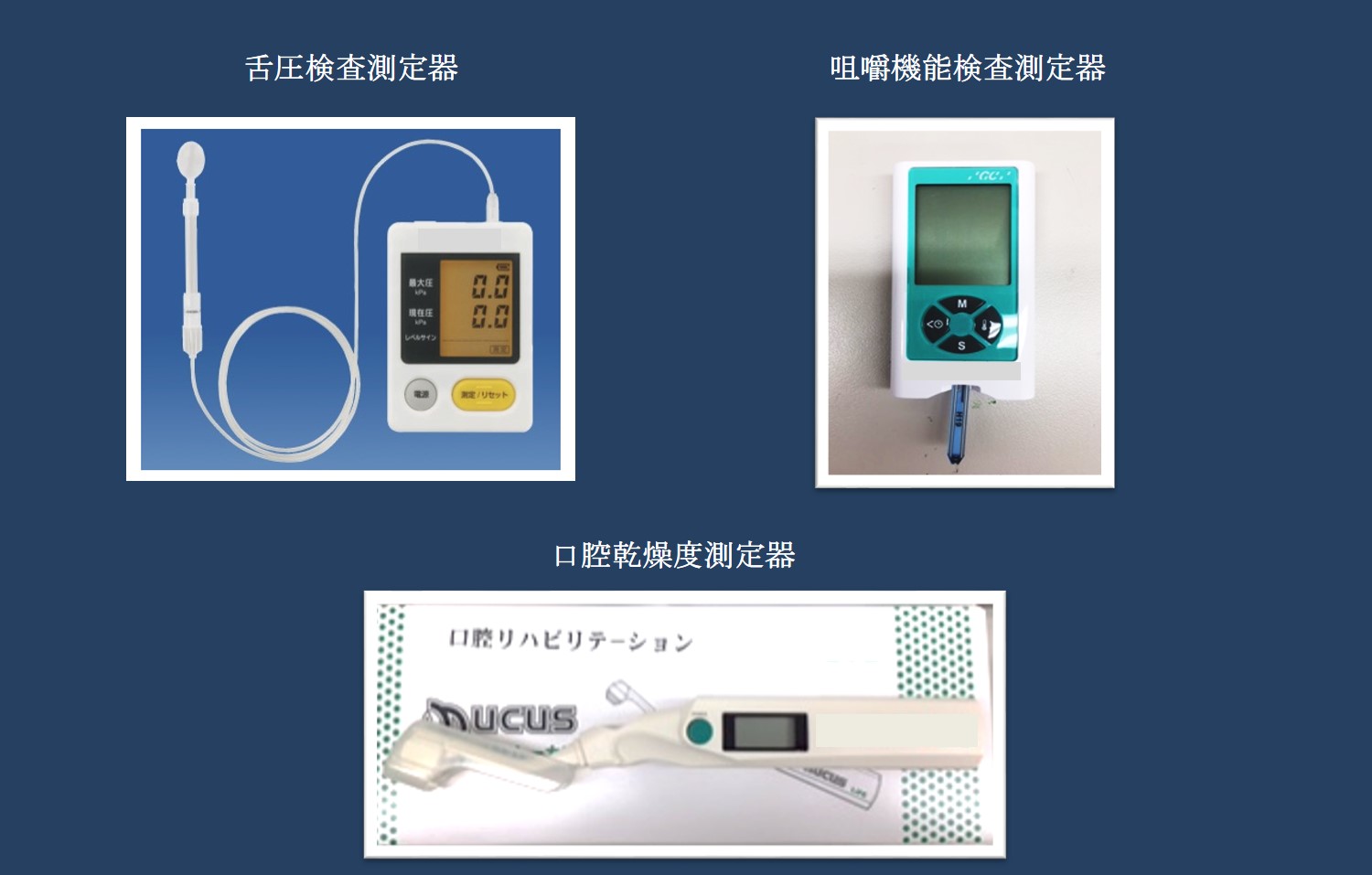
Various instruments for quantitative assessment of oral function
Efforts for state-of-the-art dental care
Electrotherapy
Interference low-frequency therapy device
Electrotherapy causes little pain when the electric current is applied. It aims to stimulate sensory nerves by middle-frequency current and activate the sense of the throat and swallowing function.
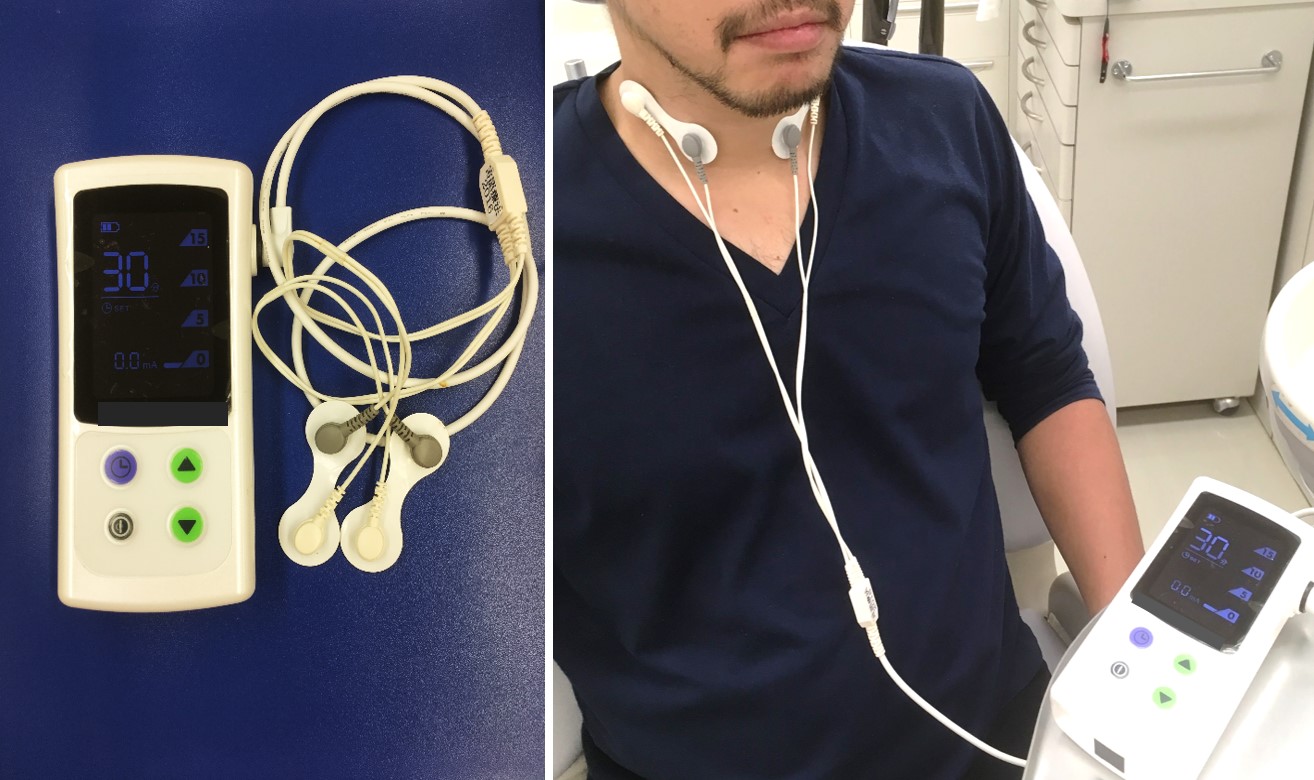
Electric stimulator (interference low-frequency therapy device)